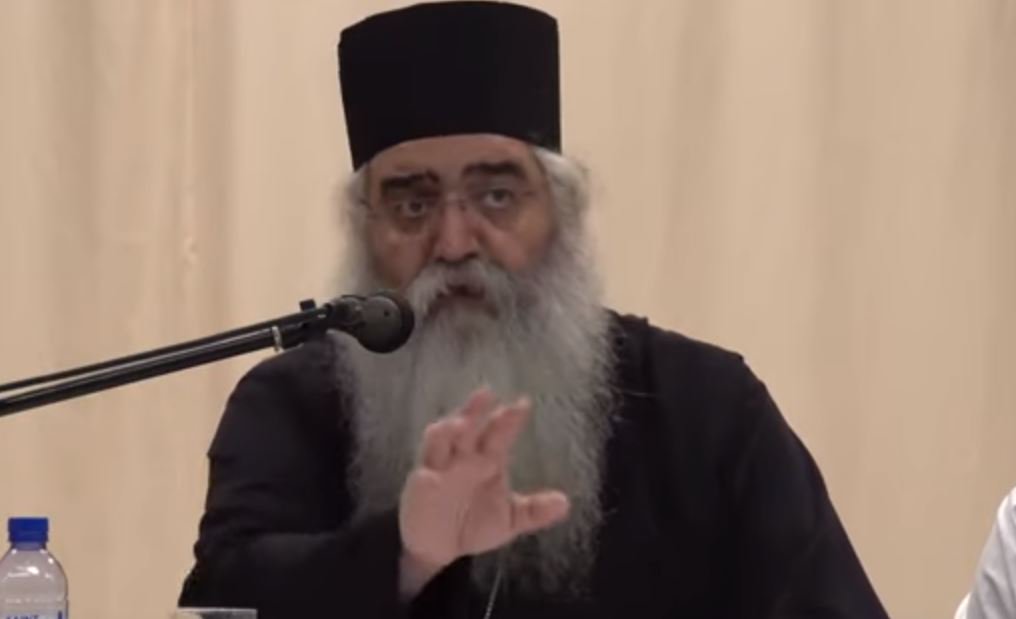A controversial clergyman, who taunted the law by narrowly escaping prosecution over gay hate speech in 2019, urged followers to defy COVID-19 health rules and attend the Epiphany celebration marking the baptism of Christ.
Morphou Bishop Neophytos, who has often declared he will not lock churchgoers out of churches despite a ban on people attending service, blessed the waters of a creek in the village of Evrykhou on Wednesday, with hundreds in attendance.
Many were not wearing face masks and did not keep distances, obliging a reluctant police to fine eight people some €300 each for breaking the coronavirus health laws.
The bishop was not reprimanded for inciting followers to break the law, but police fined the Ayia Marina church priest for allowing more than 75 people inside the church.
After a stormy anti-vaccine protest in front of Sigma TV in early December, police spokesperson Christos Andreou said they had found no evidence that the Bishop has been inciting people to break the law.
Announcing stricter health rules last week, the government said that the Epiphany Day celebrations would not be held with the traditional blessing of the waters, where winter swimmers jump into the sea, lakes or ponds to retrieve a cross thrown by the priest.
The Holy Synod and Archbishop Chrysostomos had also issued announcements in agreement with the health ministry decrees.
Public outrage over Bishop’s hate speech
In September 2019, Bishop Neophytos of Morphou was cleared of hate speech with the then attorney-general ruling that the clergyman did not commit a criminal offence with his anti-gay comments that caused public outrage.
The bishop had claimed during a public event that went viral in June that homosexuality is passed on if a pregnant woman enjoys anal sex.
Attorney General Costas Clerides had agreed with police findings that the bishop did not commit an offence under the hate speech law in his controversial comments on homosexuals and how they are ‘created’.
Clerides had ordered a police probe into highly inflammatory comments by the bishop about homosexuals, after the LGBTI Accept movement reported him for hate speech.
Clerides said the remarks were made in the context of an open dialogue on spirituality where questions were asked from the public on all subjects and answers were provided from the podium.
However, the island’s top law officer said spiritual leaders like the Greek Orthodox Bishop “should avoid clumsy and unintelligible expressions”.
The probe was ordered after LGTBI Accept movement’s president Costas Gavrielides, also an adviser to the Cyprus president on acceptance and diversity, requested the attorney general look into the matter of homophobic speech.
He said that in four years since adoption of the law on hate speech, police have not investigated a complaint nor launched legal proceedings for homophobic or transphobic hate speech.
Bishop Neophytos made his derogatory comments during a public debate on ‘spiritual dialogue’ at a school premises in Akaki, where he also said that “gays have a different smell”.
His comments were widely condemned, while the Church distanced itself from the bishop’s comments.
LGTBI Accept said it was “disappointed” by the outcome which proved the law was ineffective.
Cyprus decriminalised homosexuality in 1998 and has rolled back previous conservative attitudes to same sex relationships.
It outlawed discriminating against gay people in 2004 and brought in civil unions in 2015.










